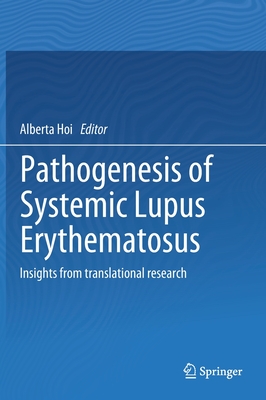
Pathogenesis of Systemic Lupus Erythematosus
系统性红斑狼疮的发病机制:转化研究的见解
人体免疫学售 价:
¥
1326.00
发货周期:通常付款后3-5周到货!
出版时间
2021年08月12日
装 帧
精装
语 种
英文
版 次
2022
综合评分
暂无评分
- 图书详情
- 目次
- 买家须知
- 书评(0)
- 权威书评(0)
图书简介
The scope of this contributed volume is to provide an overview of the latest translational research in the field of lupus pathogenesis, with particular emphasis on how these discoveries progress in parallel with therapeutic drug development. Systemic lupus erythematosus (SLE) is a multifaceted disease with a number of well-defined immune pathways that are dysregulated, resulting in an immune-mediated chronic inflammatory injury at target organs. As knowledge of these pathways evolves to provide opportunities for targeted drug therapy and lays the foundation for personalized medicine, clinicians and researchers need to keep up with the ever-expanding medical literature.This book will critically appraise the current understanding of important immunological pathways that contribute to the pathogenesis of lupus. We will review the role of interferons as part of the innate immune defects that perpetuate the loss of self-tolerance in SLE. B cell hyperactivity, as a defining hallmark of SLE, and different strategies of B cell targeted therapy will be discussed. The role of co-stimulation or immune checkpoint molecules in activating B and T cells will be reviewed, as well as other cytokines that serve in the amplification loop promoting a more proinflammatory Th1 or Th17 responses. Intracellular targets, such as signaling molecules in the JAK/STAT pathway, or a variety of kinases and proteasomes, can cause a cascading downstream effect of transcriptional responses that are important in SLE.Immune homeostasis can also be restored by bolstering the naturally occurring anti-inflammatory mechanisms. Glucocorticoid, as a potent natural anti-inflammatory hormone, can mediate its effects by recruiting histone deacetylase that serve to repress gene transcription. Glucocorticoid-induced leucine zipper is a gene upregulated by glucocorticoid that can be a potential target for development of anti-inflammatory strategy. Finally, T regulatory cells can be utilized to help restore to immune tolerance and are amongst the latest focus of therapeutic development in SLE.
本书暂无推荐
本书暂无推荐















